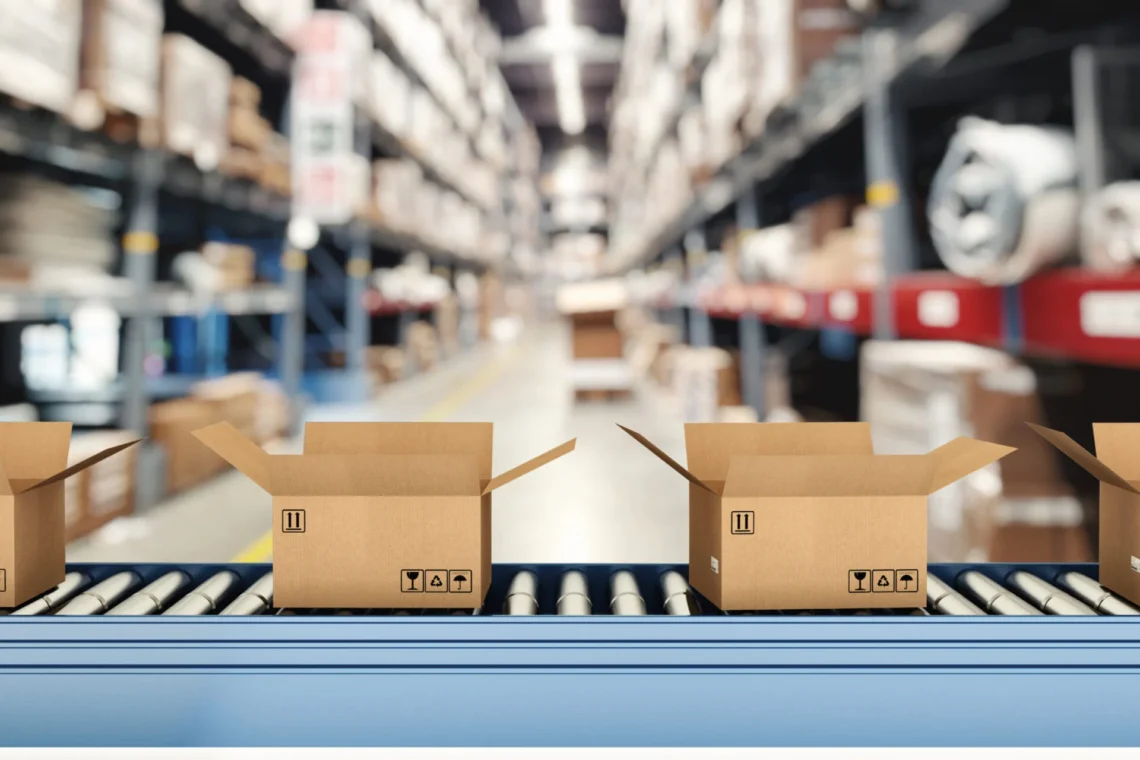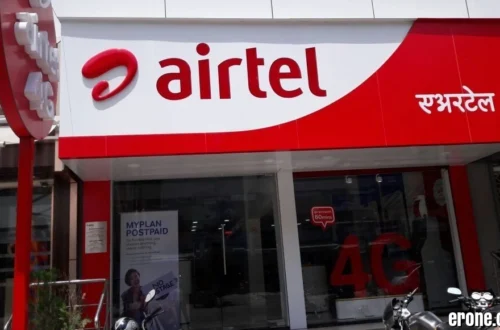What is eTarget Limited and how does it operate?
eTarget Limited is a UK-registered fulfilment company that provides logistics services for online sellers, rather than acting as a direct retailer.
Key facts:
- Registered in the UK (Companies House number 07242152, incorporated May 4, 2010) with a registered office in Essex.
- Their core service is a third-party logistics (3PL) provider: they receive stock from sellers, store it in warehouses, pick and pack items when orders come in, and hand over parcels to courier services (such as Royal Mail) for delivery.
- They are not the merchant selling the items. When you order something online and the shipping label says “eTarget Limited”, it means the item came from a seller who used eTarget for logistics.
In short: if you see eTarget Limited on a parcel or message, it’s usually because of the behind-the-scenes supply chain, not because you purchased directly from them.
Why does the name eTarget Limited show up in delivery notifications?
There are a few reasons why consumers suddenly see the name eTarget Limited in tracking texts or parcel labels:
- The seller used eTarget Limited as their fulfilment partner and thus the shipping label bears that name.
- The logistics chain is international — for example, items imported from overseas may arrive via the UK through eTarget before final delivery.
- The public unfamiliarity with fulfilment hubs means when the name appears (especially if unexpected), recipients may suspect something is wrong. Posts on review sites and discussion forums confirm this confusion.
Thus, the presence of the name doesn’t mean you ordered from them—it means your order passed through them.
Is eTarget Limited legitimate or a scam?
Yes — eTarget Limited is a legitimate company, but context matters.
- They are legally registered in the UK and actively operate in the fulfilment space.
- However, because they operate behind the scenes, and because their name has been used in smishing (SMS-phishing) and scam text messages, many consumers wrongly assume the company itself is fraudulent.
- Complaints often stem from the seller’s product, not the fulfilment provider. For example: delayed items, wrong items, or “brushing” (where unsolicited items are sent to boost fake reviews). eTarget is usually not responsible for product quality.
Bottom line: eTarget Limited is real—but always verify an item you receive or a message you get, especially if you didn’t expect it.
What are the common issues and red flags associated with eTarget Limited?
Here are some of the common complaints and things to watch out for:
- Unexpected delivery texts or parcels: Many report getting alerts that a parcel from eTarget is arriving though they didn’t order anything. These are often brushing-style deliveries.
- Smishing scams: Using the eTarget name in fake text messages designed to trick recipients into clicking malicious links or giving banking details. Examples include messages urging payment for “customs” or “processing”.
- Poor customer service for end buyers: Because eTarget is a fulfilment partner, not the vendor, if there’s an order problem (wrong item / damage / missing part) you’ll need to contact the seller, not eTarget. The lack of clarity can frustrate buyers.
- Brushing shipments: A shipping label showing eTarget may indicate the item was sent without your order, simply to help someone’s review metrics. Tracking may show delivery even though you didn’t buy anything.
Advice: If you get a message or parcel labelled eTarget Limited but don’t recognize it, don’t click links in SMS messages, verify the tracking on the official courier site, and check your recent orders.
How to handle a parcel or notification from eTarget Limited safely
If you see eTarget Limited in your tracking or receive a text, here are practical steps you can take:
- Cross-check the tracking number on the courier’s official site (for example Royal Mail or ParcelForce) rather than clicking a link in the SMS.
- Look at your recent orders: Did you order something from a merchant who might use eTarget? Often the seller’s dispatching partner is why the label says eTarget.
- Don’t provide payment or banking info: Real couriers will not ask for your bank password or card details via SMS. If the message demands payment or shows a link asking for credentials, it’s likely a scam
- If the parcel arrived unexpectedly and you don’t recognise it — it may be a brushing shipment. You can keep it or discard it; check your accounts to ensure you weren’t charged.
- Contact the seller: If you did order something and it’s being fulfilled through eTarget but the item is missing, faulty or not as advertised, contact the seller’s customer service (not eTarget) to resolve it.
By following these steps you can reduce risk and handle deliveries with awareness.
What this means for consumers and e-commerce transparency
The situation around eTarget Limited highlights wider themes in modern e-commerce:
- The supply chain behind online orders is complex. Buyers often only see the seller but not the fulfilment partner, which leads to confusion when names like eTarget appear on labels.
- Transparency matters: When shipping companies are not visible to consumers, unexpected names and labels trigger suspicion, even if the process is legitimate.
- The rise of practices like brushing and smishing reveals how legitimate logistics names can be exploited by fraudsters. As mentioned above in a Reddit post:
“I got a text from Royal Mail saying my ‘package from eTarget Limited’ would be delivered tomorrow… I hadn’t ordered anything.”
- For online sellers, the reliance on third-party fulfilment partners like eTarget emphasises the need for clear communication to buyers (e.g., “Your item ships from our warehouse via eTarget Limited”).
- For consumers, knowledge of these behind-the-scenes players helps reduce anxiety when an unfamiliar name appears on tracking. It also helps you to know when to act (or to ignore) a delivery alert.
In short: the presence of eTarget Limited on a parcel doesn’t automatically imply anything bad—it simply means the item was shipped via their logistics service.
Frequently Asked Questions (FAQs)
Q1: Why did I receive a parcel from eTarget Limited when I didn’t order anything?
A1: It could be a brushing shipment sent to boost ratings, or your order may have been fulfilled via a seller using eTarget, and the label shows their name. Always check your order history first.
Q2: Is eTarget Limited a scam?
A2: No—eTarget Limited is a legitimate logistics company registered in the UK. However, their name has been used by scammers in fake SMS tracking alerts, which causes confusion
Q3: Can I contact eTarget Limited about my order or returns?
A3: Usually no—eTarget handles fulfilment, not customer service for the actual sale. For refund or item issues, you should contact the seller you purchased from.
Q4: What should I do if I get a text saying “Your parcel from eTarget Limited”?
A4: Do not click any payment links. Verify tracking on the carrier’s official site; check if you ordered something; treat any request for payment or credentials as suspicious.
Q5: How long does delivery via eTarget Limited take?
A5: Delivery times depend on the seller, stock location and courier. While some parcels arrive in a few days, overseas fulfilment may add delay. eTarget is only one link in the chain.
Q6: Why is my shipping label from eTarget when I ordered from Amazon/eBay?
A6: Because the seller you ordered from used eTarget’s fulfilment services. The seller is still responsible for the sale; eTarget just handles the warehousing and dispatch.
Conclusion
In the evolving landscape of online shopping and logistics, eTarget Limited plays a behind-the-scenes but important role. While their name may surprise you when it appears on a parcel or tracking message, it doesn’t automatically mean anything negative. They are a real UK-registered fulfilment partner used by online retailers. The confusion arises because most consumers are unfamiliar with the logistics layer behind their orders, and because fraudsters sometimes exploit their name for scam attempts. By staying informed—checking tracking manually, verifying the order with your seller, and steering clear of suspicious payment requests—you can navigate delivery notifications smartly and safely.





